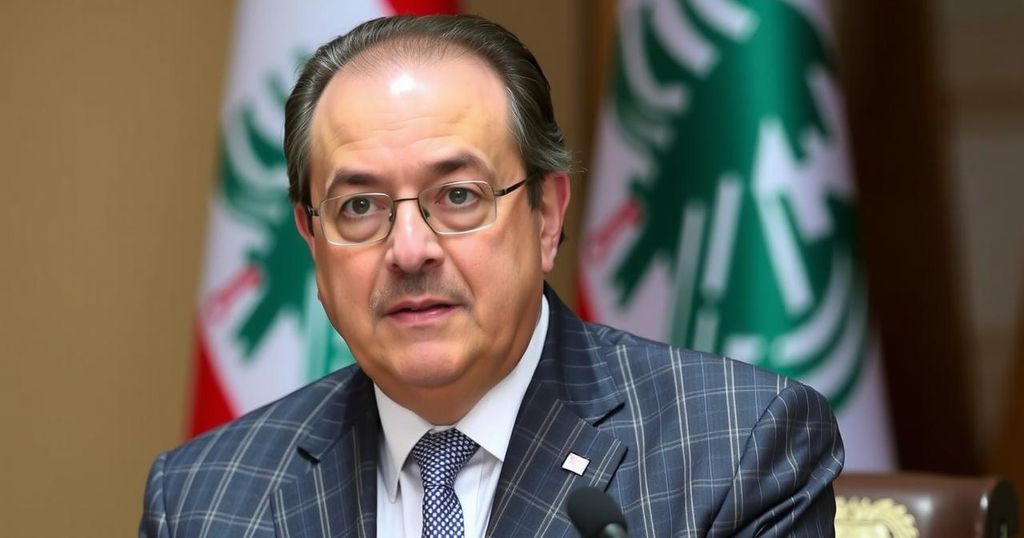Lebanon Appoints Nawaf Salam as Prime Minister Amid Economic Crisis

Lebanon’s President Joseph Aoun appointed ICJ judge Nawaf Salam as prime minister, securing the backing of a majority of lawmakers after two years of caretaker governance. Salam’s nomination is seen as a shift towards a more independent governmental approach amidst Lebanon’s severe economic crisis, with significant challenges awaiting his leadership.
Lebanon’s President Joseph Aoun appointed Nawaf Salam, the presiding judge at the International Court of Justice (ICJ) in The Hague, as the new prime minister on Monday. This decision follows a protracted two-year period of a caretaker government amid a severe economic crisis affecting the nation. The announcement came after Aoun consulted with lawmakers, ultimately securing the endorsement of 84 members of parliament, although nine members supported the interim prime minister, Najib Mikati, and thirty-five remained undecided.
Salam, who was abroad at the time, is expected to return to Lebanon shortly to commence his task of forming a government. Aoun, whose recent election concluded a two-year vacancy, expressed hopes for a smooth and rapid governmental formation process. This nomination is viewed by some lawmakers as a “purely Lebanese political initiative” free from foreign influence, representing a desired shift away from corruption and nepotism within the government.
As the newly appointed prime minister, Salam will face daunting challenges, including the necessity of implementing reforms to attract international assistance and begin the rebuilding process in war-damaged areas. His nomination has sparked varied reactions; on one hand, it has invigorated discussions about moving past the era of armed political factions like Hezbollah, while critics allege that Salam’s appointment represents a shift towards US political interests in Lebanon.
Despite the optimistic tone surrounding Salam’s candidacy, history recalls that designating a prime minister does not guarantee swift government formation. Political divisions and negotiations have previously extended this process over weeks or months, raising questions about the efficacy of Salam’s leadership in addressing Lebanon’s pressing issues.
Lebanon’s political climate has been tumultuous, characterized by prolonged periods of paralysis and caretaker governance. The recent election of President Joseph Aoun was preceded by a two-year vacancy in the presidency, reflecting deep-seated divisions within the Lebanese political landscape. Nawaf Salam’s appointment as prime minister occurs during a critical time marked by significant economic challenges, compounded by the impacts of historic conflicts including the Israel-Hezbollah tensions.
In summary, the appointment of Nawaf Salam marks a hopeful turn for Lebanon as it seeks to emerge from a turbulent economic climate and political stagnation. With widespread parliamentary support, Salam’s cabinet formation process will be crucial in determining the nation’s future, particularly in implementing necessary reforms and rebuilding efforts. The political dynamics, notably the role of Hezbollah and potential external influences, will significantly shape Salam’s capacity to govern effectively.
Original Source: www.hindustantimes.com







